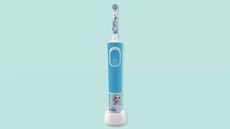With shorter hairstyles being popular among the male population, it’s a common thought that men don’t need to use conditioner when washing their hair. Ask around, and you might even find some don’t bother because they believe it’s “something only women do”. However, times are changing and it’s become commonplace for men to take better care of their locks, use the best shampoo for men, make more effort and appreciate the benefits of adding a handful of conditioner to their morning routine.
For those who are still a little reluctant - perhaps because they don’t “see the point” or understand why or if they should - we’ve enlisted the help of several UK-based hair experts to bust the myths surrounding male hair care. Do shorter styles really need to be conditioned and what are the benefits of this, if any? Hold on to your mops, gentleman, we’re about to find out.
The benefits of conditioning your hair
Let’s get straight to the point: do men really need to use conditioner? There is no short and fast answer to that question, so let’s look into what it does and how it works.
Neagle Carthcart, Director of hair thickening brand Mane, explains that the main job of a conditioner is to rehydrate the hair.
“Our follicles are the only ‘alive’ part of the hair, so the strands need a different type of care,” he says. “Their hydration and moisture needs to come from external, topical treatments to keep them healthy.
While Carthcart advises that, generally, men should condition their hair for this reason, he notes that it’s important that the frequency to which they use it should be adapted on a person-by-person basis in accordance to hair type and style. We’ll go into this later on.
Using conditioner isn’t just about keeping the hair looking moisturised, shiny and healthy, either. It can also contribute to preventing hair loss, Carthcart adds:
“If these are not treated properly through conditioning, they can lose their elasticity and snap off which results in a thinner mane and possibly hair loss.”
On the other hand, Tony Maleedy, trichologist, cosmetic scientist and founder of Tony Maleedy Hair, says because men generally have oilier skin than women, and also because their hair tends to be shorter, “using a conditioner is less important”
However, he adds that if a man does have dry hair, and particularly if it is long, then using a hair conditioner becomes very important in keeping the hair looking good and helping to prevent breakage.
Hair type is a big factor
Let’s explore this topic of hair type further. Does the genetic makeup of your hair really have an affect on how frequently you should condition, if at all?
Ricky Walters, founder of London’s most exclusive hair studio, Salon64, says so.
“The use of conditioner should always be dictated by the hair type,” he claims. “For example, dry, stubborn dehydrated hair will need to be conditioned with deep moisturising conditioner whereas finer, fly away soft hair will not require any or very little perhaps just once a week.”
As for those with a naturally oily scalp, Carthcart says your hair will “essentially condition itself through its natural sebum”. Still, he recommends that if you have a more oily scalp with longer hair then you should still condition the ends.
Coloured hair is also something to take into consideration. For example, if it’s exceptionally dry due to bleaching, you might want to condition more often than normal - perhaps every day, even if you are not shampooing.
“Bleached hair needs more care as the dye works by breaking down the stable pigment molecules, which also breaks down the natural fatty acids on the hair shaft and therefore weakening the strand,” explains Carthcart.
“Argan Oil, a key ingredient in hair thickening conditioners, is full of fatty acids, helping to mimic those lost through the process.”
Choose the right conditioner for you
While hair type dictates how often you should condition, it can also be used as a guide to help you choose the type and brand of conditioner you buy.
“There’s so many different types of conditioner designed for different types of hair and they all do a different job, so the type of conditioner you go for depends on the hair’s needs,” says Lisa Brown, hair stylist, colour expert and owner of Lisa Brown Hair Studio.
The type of conditioner you should use will also depend on how long you leave the conditioner in for, Brown adds.
“Some conditioners are designed to give instant results and so should be applied to the hair and then washed off straight away. The job of these is to temporarily smooth the hair's appearance on the outside.”
However, those conditioners that have been made to be left on are designed that way because they have a particular job to do, she explains.
“It might be that it needs to penetrate further and treat the hair because it’s been developed with a specific repair job in mind.”
These conditioners usually have more technology involved within their ingredients.
“It’s important that you use the correct conditioner for your hair type to get the best out of it,” adds Brown. “You wouldn’t use a deep intensive repair mask on healthy fine hair or an instant wash straight off conditioner on very dry, chemically treated hair, for example.”
If in doubt, check the instructions on the back of your conditioner to see how long to leave on your head before washing off. Or better still, ask your stylist. They will know the type of hair you have and be able to recommend the product for you and how best to use it.
Lastly, consider buying your conditioner (and shampoo) from a salon, barbers or directly from your stylist. As most experts will tell you, professional, salon-quality products are better than those you pick up from the supermarket.
"Any conditioner you buy from the same place as your veg won't give you the best results," says Brown. "Always buy professional."
So, how do you know which conditioner is right for you? One easy way is by simply looking at your hair, pinpointing your type and choosing a conditioner that is best suited for any issues or pain points you might have identified. Here’s a simple guide:
In addition to the above guide, Carthcart makes a case for experimenting to find out which is best suited to you and your locks.
“For those with a buzz cut or very short hair, for example, conditioner should still be used to help replenish and supplement your own natural sebum. But, it may be more suitable to use once a week,” he explains.
“Try out different conditioning routines until you find how your hair performs the best.”
Liked this? If you're looking for hair growth shampoo, then we'd recommend you read our guide on the best hair growth shampoo, where we go over the shampoos that slow down hair loss, and, if you're looking to shake up your hair care routine, you can also check out the best hair clippers so you can cut your hair at home, best hair dryers for quick, frizz-free drying for all hair types, and the best hair straighteners for sleek, frizz-free hair.











